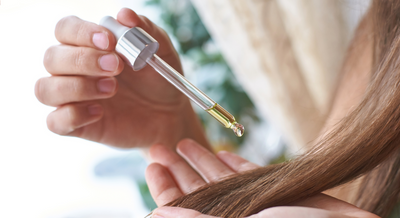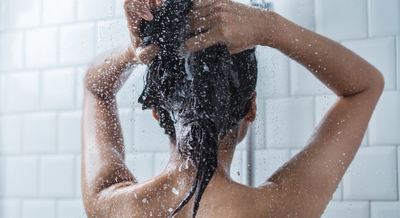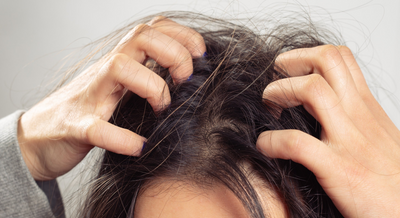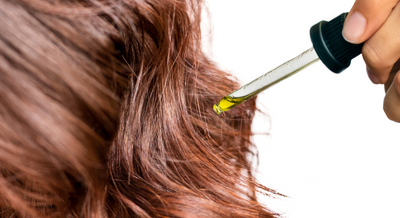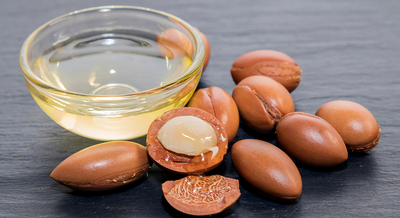We’ve discussed at length the importance of tailoring your hair maintenance routine to your specific hair type, and it bears repeating that not all hair types are the same! What works for one hair type may have the exact opposite effect on another hair type, making it vital to truly understand what your hair best responds to. For instance, straight hair with normal moisture levels responds best to a frequent washing routine to prevent oiliness and grease, while a high-heat blow dryer is ideal to lock in as much volume and shape as possible. On the other hand, a frequent washing routine would be disastrous for a dry and curly hair type, as would any sort of direct high-heat application. As you can see, it is vital to understand your hair as much as humanly possible in order to not only have it looking its best, but to also prevent damage and breakage.
Unfortunately, while there is plenty of information out there to help how to better maintain straight and curly hair types, the information pertaining to coily, textured, or African American hair types is quite lacking. The truth is that these hair types are by far the most difficult to maintain and most sensitive to environmental and physical stressors, making it a daily battle keeping the hair looking healthy and presentable. Thankfully, recent research has helped uncover some fantastic hair care advice for ethnic hair types, with much attention being given to the concept of co-washing. Read below to understand what co-washing is and how this amazing technique can help revitalize African American hair!
Understanding African American Hair
Before diving into the concept of co—washing, it’s important to understand what makes African American hair so unique in comparison to other hair types. Many people of African American descent are genetically predisposed towards hair that is incredibly curly, more so than traditional curly hair. These curls can range from loose to incredibly tight and “coily”, with all sorts of unique growth patterns and curl shapes. As beautiful and truly unique as these hair patterns are, they also cause severe damage to the hair and make the hair strand incredibly fragile and prone to breakage.
Extra Dryness
We all know that curly hair is naturally more dry than other hair types, and African American hair is quite dry as well, even more so depending on the tightness of the curls and the particular curl pattern. Because of the coiled hair pattern, less oil reaches the ends of the hair from the hair follicle, leading to hair that lacks moisture and has difficulty closing the cuticle.
Prone to Breakage
Given the inherent dryness of African American hair, you can already assume that this hair type is quite prone to breakage, given that hair is more susceptible to breakage when its cuticle is raised and when it lacks the moisture required to maintain its structural integrity. Additionally, the curled and coiled shapes of the hair creates a variety of weak points in the hair shaft, which can cause easy breakage. Lastly, because of the rough, thick texture, brushing can be an incredibly damaging activity, and it can be all-too easy to break strands of hair while styling.
Co-Washing to the Rescue
Clearly, there’s a lot of work involved in maintaining African American hair and preventing excess dryness and breakage. Aside from being mindful with styling and brushing techniques, perhaps the area with the most impact on African American hair health is washing. While washing one’s hair is necessary to remove grime and buildup, too much of it can be damaging and stripping to one’s hair. With African American hair, this is even more true, as even the gentlest shampoo can cause tremendous damage to the hair and outer cuticle layer.
Thankfully, a new hair washing technique has taken the hair world by storm as a perfect solution for those with coily, textured hair! Enter: co-washing.
What is Co-Washing?
Co-washing, short for conditioner washing, is a technique in which one cuts out a shampoo entirely and only washes the hair with a conditioner. While many are able to do this with just a traditional conditioner, there are numerous co-wash products on the market that have been designed with small amounts of extremely gentle cleansing ingredients to make for an effective conditioner wash.
What Does Co-Washing Do?
As you can guess, co-washing is significantly more gentle and hydrating than washing one’s hair with a shampoo. While applying a conditioner to hair that has been washed helps to replenish any lost moisture or hydration as a result of shampooing, co-washing skips the shampooing step entirely and is just pure, unadulterated moisture application to the hair. Aside from cleaning the hair in an extremely gentle manner, this practice actively boosts the hair’s moisture levels in a far more dramatic fashion than the traditional conditioner application would.
By preventing shampoo-induced damage and infusing the hair with extra moisture, co-washing allows those with African American hair to increase hair moisture levels and maintain the integrity of the cuticle layer. This helps keep the hair as healthy and strong as possible, preventing breakage while enhancing the shine, softness, and manageability of the hair.
How to Co-Wash Your Hair
As with any washing technique, you’ll want to do this as infrequently as possible, ideally 2-3 times a week. Start by gently rinsing the hair with water, then applying the conditioner or conditioner wash to the hair and scalp, starting at the roots and working to the ends. Because you won’t be using a traditional shampoo, you’ll really want to make sure you take your time working the product throughout the entire length of the hair, removing grime while being gentle enough to avoid damage. After leaving the product in your hair for five minutes, rinse out with water and gently dry the hair.
For those who still find their hair to be dry, consider applying a leave-in conditioner after the co-wash. On the other hand, some may find the need to use a gentle shampoo from time-to-time to remove any product buildup in the hair.


